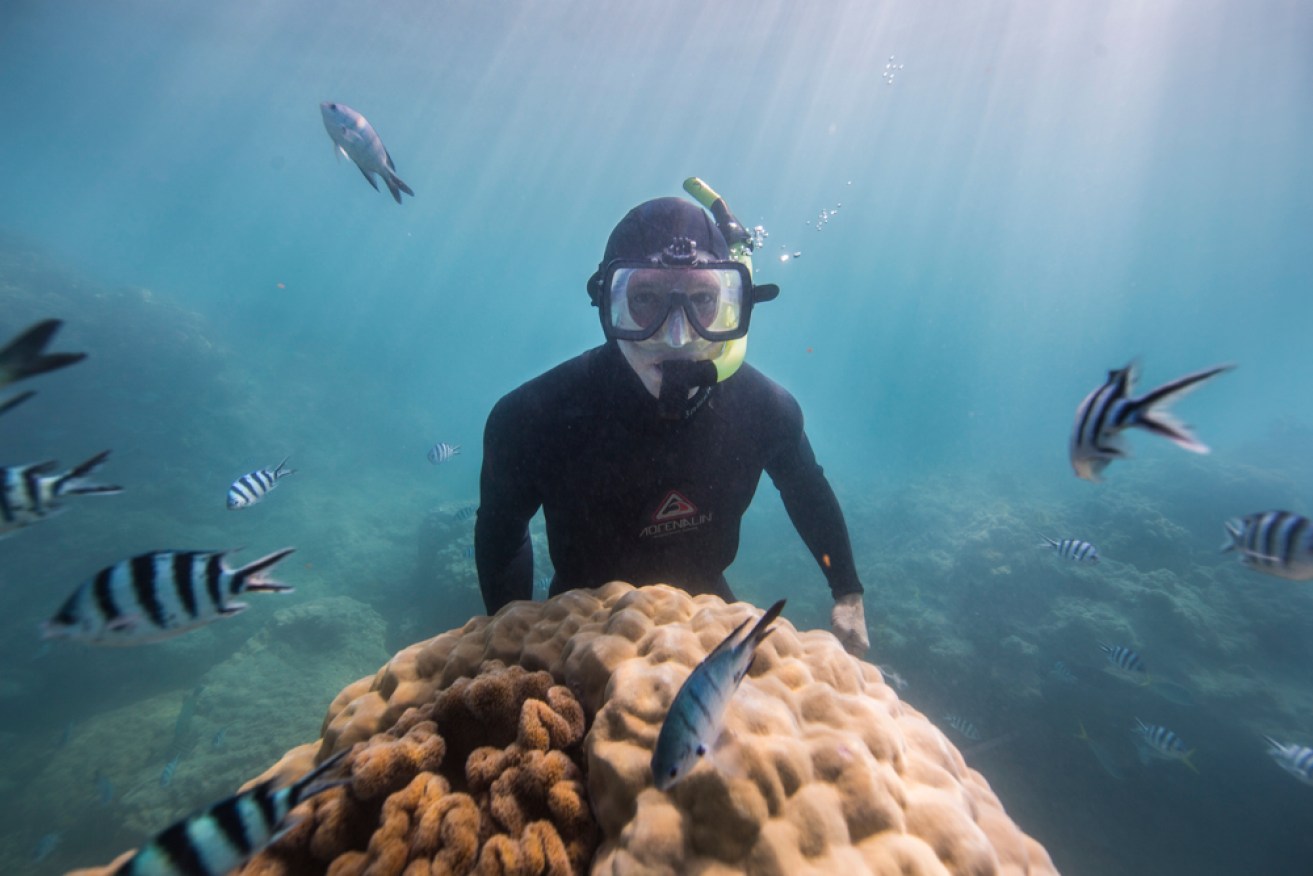Funding for the Reef: A one billion dollar drop in the ocean


Experts say an 'in danger' listing is what's best for the Great Barrier Reef, but the Australian government is pushing back. Photo: Tony Fontes
Headlines about public funding in an election year are generally accompanied by hi-vis vests, the promise of more jobs and occasionally a bit of Top Gun theme music thrown in for good measure.
So it was unusual to see a beachside photo-op with Scott Morrison to announce a “record” $1 billion investment (over nine years) in the environment and our natural heritage – ostensibly aimed at saving the Great Barrier Reef.
On the surface, this announcement should be a cause for celebration. Such a large sum of money to address water quality, fix erosion and stop pesticides running into the reef can only be a good thing. But if we dive just a little deeper, it’s clear this announcement is aimed more at muddying the political waters than tackling the real threat to one of our greatest national treasures.
Scientific experts agree that the greatest threat to the coral reef system is climate change, driving warmer oceans and coral bleaching. It’s a view supported by the Great Barrier Reef Foundation, which in 2018 found itself the unlikely beneficiary of an unsolicited half a billion dollars from the federal government.
Saving the reef should be straightforward
Quite an injection for an organisation that only employed around six staff. As it turned out, most of the money was put into term deposits with the Big Four banks. The irony of this is that these banks had just lent $2.3 billion to fossil fuel projects in the last year. The immediate impact of the money was to provide capital to projects that are driving climate change.
Addressing climate change, and saving the reef, should be straightforward. We know that the greatest source of the greenhouse gas emissions is from mining and burning fossil fuels. If the federal government wanted to make a serious effort to help the reef it would halt any new gas and coal mining, reduce its reliance on fossil fuels and encouraging other countries to do the same. But it is doing the opposite.
There are 116 new gas and coal mining projects currently in the pipeline according to recent Australia Institute research. This includes opening several new gas basins – including the Beetaloo and Canning basins – the development of which is being actively supported by governments with large subsidies. Just this week the gas lobby, APPEA is out seeking even more public support. Collectively these projects would result in almost 1.7 billion tonnes of CO2e emissions annually – equivalent to building over 200 new coal power stations.
This is despite the International Energy Agency confirming there is no room for new fossil fuel projects if the world is to keep global warming to 1.5 degrees Celsius. The 1.5 degrees target applies to all nations, including Australia, signed up to the Paris Agreement.
Energy sector hasn’t decarbonised
Australia’s addition to fossil fuels isn’t just in production but also in use. Australia’s energy sector hasn’t decarbonised in the last 20 years. When compared to 22 other developed (OECD) economies and Russia, Australia ranks last on the energy transition.
Worse still, the federal government spends billions subsiding the country’s addition to fossil fuels. Just one year’s worth of a fossil fuel tax break exceeds the amount of money the government spent that same year on the Australian Army.
Australia is the third-largest exporter of fossil fuels in the world, and in the top 10 per cent of emitters. As we are so often reminded by our government, Australia is not solely responsible for causing or tackling climate change. That is a global effort and, as a G20 economy, Australia can use its diplomatic capital to convince others to do more.
However, Environment Minister Sussan Ley told the ABC on Friday that “obviously, we [Australia] can’t influence the emissions from the big emitters …”.
But what is painfully obvious is that Australia is not even trying. The day before Minister Ley was on the radio, the Minister for Emissions Reductions Angus Taylor was addressing an invite-only forum containing all the ‘big emitters’, representing 80 per cent of global GDP, population, and greenhouse gas emissions, hosted by the United States (US).
Ambitious calls to decarbonise ‘mere words’
After refusing the calls of allies like the US and the United Kingdom to increase Australia’s weak national 2030 emissions reduction target last year, Minister Taylor told the world that the ambitious calls to decarbonise were “mere words”. While “ambition is good … achievement is even better”. Yet the Australia government’s achievements are in growing its gas and coal mining and increasing its reliance on fossil fuels.
The same day Minister Taylor gave his speech to the US forum on Thursday, he also hosted a joint press conference with Minister for Resources Keith Pitt. There was no mention of ambition or achievement. Instead, the two ministers indicated that they were ready to sell the world Australia’s gas, despite no one ever asking. An unsolicited sales pitch to supply more of the fuels that are the greatest threat to the Great Barrier Reef.
Let’s look beyond the photo-ops: a billion dollars to treat the symptoms of climate change while doing nothing to tackle the cause might help muddy the political waters temporarily. But when it comes to saving the reef, it’s a $1b drop in the ocean.
Richie Merzian is climate & energy director of independent think-tank, the Australia Institute. @RichieMerzian








